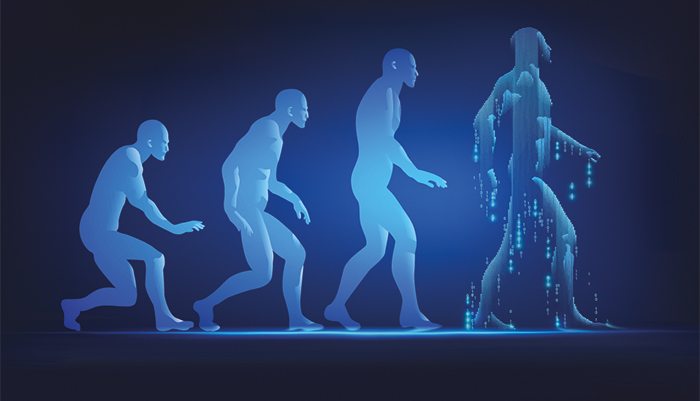The Human in the Digitally Enabled Product Service System
Apr 09, 2020 • future of field service • Lucenre University • Servitization • Shaun West • The View from Academia • Servitization and Advanced Services
Dr. Shaun West, of Lucerne University, explains why increasingly it seems that we have made the mistake of designing services with the machine in mind and us mere humans are developing a habit of just getting in the way...
I don’t like to be treated as a cog in a larger wheel and so why do we often design systems that treat us as if we were a cog in a complex system? This has been to me often a contradiction we see in the modern world where services are more and more standardized so that we feel we are there to service the machine.
The Importance of Service Design
My recent trip through Heathrow was very much in that vain – services (often hidden services) have been dehumanized that the experience for all actors involved is very poor.
Agency within the system at Heathrow has been lost for all actors leading you to consider that sheep might have a better experience, but at least the system is cost-effective and compliant. But service science and through service design, we don’t have to design the future world like this - we can and must do better.
We are trying to look at things in a more human-centric approach with our Smart Twin’s project where, with ten partners, we are building digital twins for different use cases. Within a number of the cases, the interactions with the digital assistant are really important as they are supporting decision-making processes.
In other cases, we’re considering how to delegate important tasks to the digital assistant and expecting them to return for new instructions when problems start to build. This is a very different position from asking Siri to find the music I’ve been listening too (Nylon Strung by Underworld if you were interested) or to tell my heating system at home to change the set-point to 19°C from 14°C.
This returns us to the thought that “we need to remember that the human is part of the system rather than subservient to the system”. Given that many of us are in the more technical environment, it is worth looking at how we used to treat machines – we gave them care and attention, we looked after them and we listened to them.
In effect, we treated them as if they were human in many aspects. This was part of the logic that we initially used with the development of the Avatar model. (See figure 1 below). To keep the truck working for me I have to look after it and treat it with respect, if I don’t it will stop doing what I expect of it.

The model shows graphically what you need to do for it and what it will do for you – over the life-cycle you can see the whole range of services that it needs to consume to deliver for you. My coffee machine behaves just like this – if I don’t fulfil my side of the bargain it delivers me poor coffee.
When digitalization takes place we automate jobs so, therefore, people just resist the change. How true is this really? It depends… robotic or digital service assistants can be deployed.
The ‘self-service kiosk’ service assistants can, in product dominate logic, appear to be a major step forward on the service. It becomes possible to have one “service operative” whose real job appears to tell me how I should be interacting with their new solution rather than allow redeployment of staff to improve the overall customer journey and experience.
In a case I know well, the digital assistant does this by taking away tasks that the current service desk operators are poor at performing and allowing them to focus on supporting the customer with real issues – the objective of the service desk.
Here the service desk didn’t want to go back to the old way of working. Interestingly, they are now happier in their work and doing a better job.
The common theme here is to focus on all people and machines with respect and understand their basic needs and requirements, as well as what you're expecting from them when building digital solutions.
Agency is important for people; this places us in ‘control’ and allows us to have some control and understanding of what is happening. It stops us from feeling like being a small cog in a large complex wheel. Agency also brings co-creation of value, again important as the literature confirms that lasting relationships are built on co-creation of value and joint decision making between many actors.
Such relationships also create social and emotional value during service engagements and somehow we need to learn to do this effectively with digital helpers, assistants, and advisors.





















 Field Service News is published by 1927 Media Ltd, an independent publisher whose sole focus is on the field service sector. As such our entire resources are focused on helping drive the field service sector forwards and aiming to best serve our industry through honest, incisive and innovative media coverage of the global field service sector.
Field Service News is published by 1927 Media Ltd, an independent publisher whose sole focus is on the field service sector. As such our entire resources are focused on helping drive the field service sector forwards and aiming to best serve our industry through honest, incisive and innovative media coverage of the global field service sector.
Leave a Reply